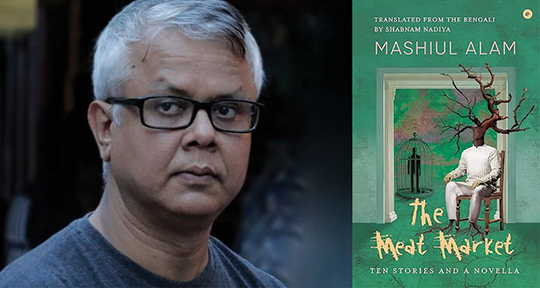The Meat Market by Mashiul Alam, translated from the Bengali by Shabnam Nadiya, Eka Westland, 2024
From its first story, The Meat Market amply indicates the weirdness that awaits readers. Written by Mashiul Alam, who was born and brought up in northern Bangladesh, this collection brings together short fiction originally written in Bengali, translated into English by Shabnam Nadiya, who continues to prove her skill. Described as “surrealist political horror,” the politics of The Meat Market is not an extraneous element limited to politicians and statecraft, but an omnipresent, embodied aspect of people’s lives; there is not a single sphere, no matter how small, devoid of it. Alam makes full use of affective disgust to drive this point home, letting the macabre and the absurd rise as the defining forces, thereby showcasing the hypocrisies of Bangladeshi society and the daily realities of the citizenry. These stories challenge social mores and underline existing fault lines, hidden behind the veneer of normalcy.
Perhaps the most chilling work in this collection is “Field Report from Roop Nagar,” which is written from the first-person perspective of an editor at a daily newspaper. As a regular work day passes, he slowly discovers that he is unable to get in touch with anyone who lives in Roop Nagar. He tries friends, colleagues, relatives—but the call either does not connect or just keeps on ringing, no one ever picking up. He asks people who live near the area to go and ascertain the situation, but they too become unreachable. Soon, the general public and the government also catch up to the fact that there is no way to connect to Roop Nagar. Only one piece of evidence is revealed: supposed field notes from one of the narrator’s eccentric colleagues, consisting of a video clip and some audio recordings. Together, they relate, in graphic detail, the horrific murder of a girl. READ MORE…



